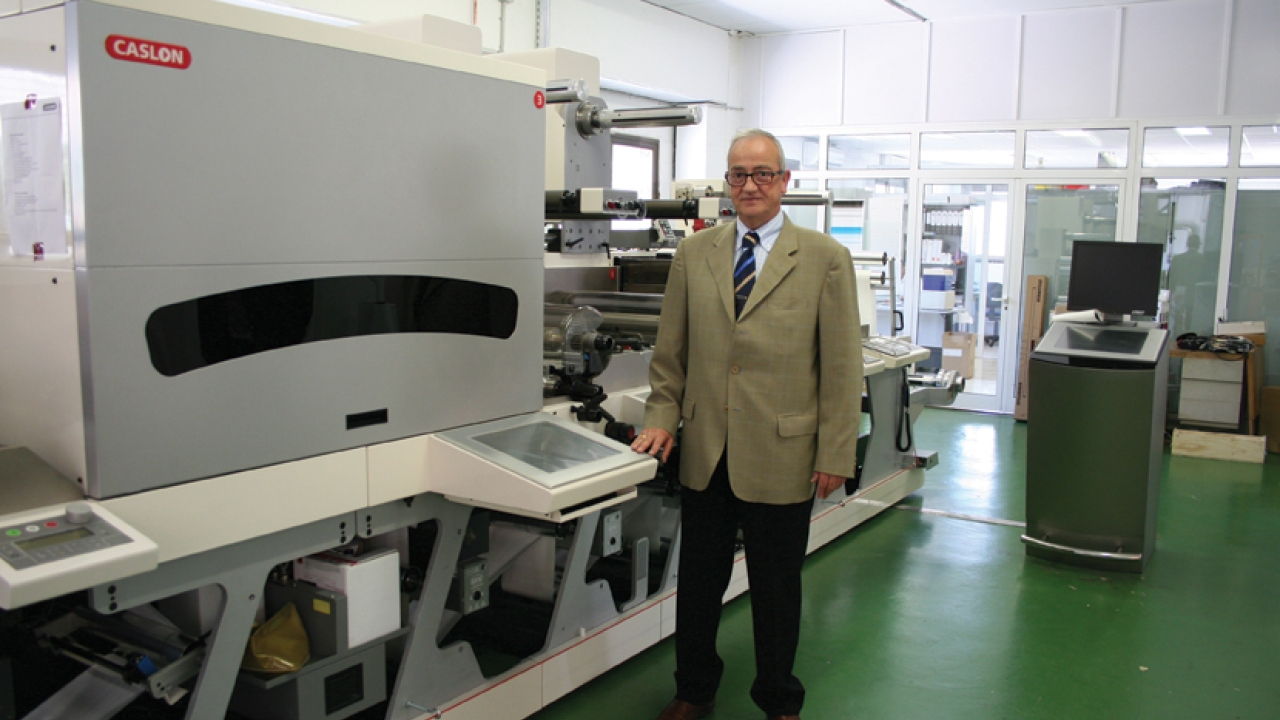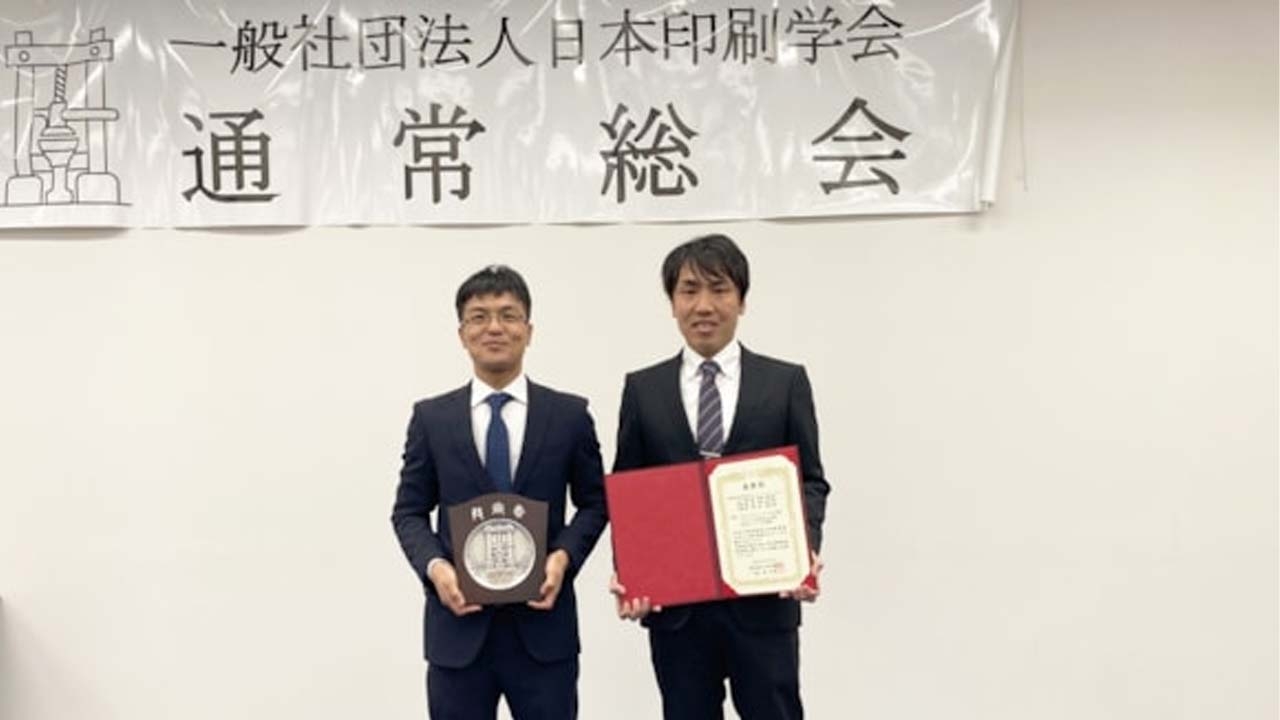Caslon first for Spain

Etiquetas Anver is the first label converter in Spain to install a Nilpeter Caslon hybrid digital/analog press. Andy Thomas reports from Barcelona
Founded in 1990 by Antonio Vergés, Etiquetas Anver is a 14-strong privately owned company which counts some of the biggest global brands in its customer portfolio.
Vergés started his business converting blank labels before purchasing his first flexo press, a 6-color Nilpeter FA2400, in 1996. This was the first such machine installed in Spain.
With label sales increasing rapidly, Vergés moved Etiquetas Anver into a new, wholly-owned factory, and in 2005 purchased his second press, an 8-color FA-3300. ‘Working two shifts, the machine has not stopped from that day to this,’ says Vergés.
When trends towards shorter run lengths and increased sorts pushed Vergés to consider digital, he turned to his long time press partner and in October 2010 finalized the decision to acquire a Nilpeter Caslon hybrid digital/flexo press.
‘It was very important to us that the technology was in-line, so we can do the complete job in one pass,’ says Vergés. ‘We wanted the print 100 percent in register with the die cutting and any other processes. Working with paper it is easy enough to maintain register, but with films holding register is very difficult in these cases. Register control is excellent in the Caslon.’
Etiquetas Anver’s Caslon press is configured with four flexo units, two in front of the 4-color Caslon inkjet module and two following. The press is equipped with turnbar, cold foil, de- and re-lam and two die-cutting units, with ancillary equipment including Vetaphone corona treater, Kelva web cleaner, BST inspection system and GEW UV.
Another reason for purchasing a hybrid machine was the company’s extensive use of special colors. ‘We are able to reproduce 95 percent of all colors we need with the Caslon, far more than we ever dreamed to imagine. The remaining five percent we produce with flexo,’ says Vergés. ‘The L’Oreal label, for example, has to be the correct Pantone reference, but at the same time there are different languages, and more and more short runs for different hair color references. For this label we would print a label where the top remains the same and the variable image and text are digitally printed below. So a combination of digital and UV flexo is the perfect solution for customers like L’Oreal, Schwarzkopf and Henkel.’
Vergés points out that the clear materials typically used in the cosmetics market require an opaque white flexo print. ‘We can then print digitally on the variable image part of the label,’
For particularly complex jobs, the Caslon has a second pass facility, and Vergés may even consider retrofitting additional flexo units at a later stage.
It is not just cosmetics where the question of solid colors comes up. ‘We have the same issue with labels for paints, where the colors must be unique solid colors and there are a lot of short run text changes,’ says Vergés.
Vergés calculates that on particularly complex jobs where both color and text are variable elements, plate savings alone could be up to 100,000 euros.
The Caslon press also allows Etiquetas Anver employees to use the expertise they have built up in high quality flexo printing. ‘We have switched from 60 lines/cm to 80 lines/cm anilox and using digital plates we can achieve offset quality on the FA-3300. Seventy lines/cm is where offset quality technically begins and we are reproducing it here with UV flexo. It is important to us that we can match this quality on the Caslon flexo units.’
On the other hand, Vergés says there are some things digital can do better than flexo: ‘digitally printed vignettes, for example, are much better than flexo.’
An interesting question for companies like Etiquetas Anver which have gone down the hybrid analog/digital route is whether they will ever again buy a conventional flexo press. In another year it will be interesting to ask Antonio Vergés for his answer.
Growing in hard times
With the Spanish economy going through a difficult time, Antonio Vergés is looking to find new export markets in the nearby south of France and in Switzerland, where his brother has lived for the last 20 years. ‘Our information is that we can be very competitive. We have Swiss quality with our Nilpeter presses, but with our lower costs we can still produce a label for three times less, even with the transport costs.’
Pictured: Antonio Vergés, owner of Etiquetas Anver
This article was published in L&L issue 4, 2011
Stay up to date
Subscribe to the free Label News newsletter and receive the latest content every week. We'll never share your email address.


